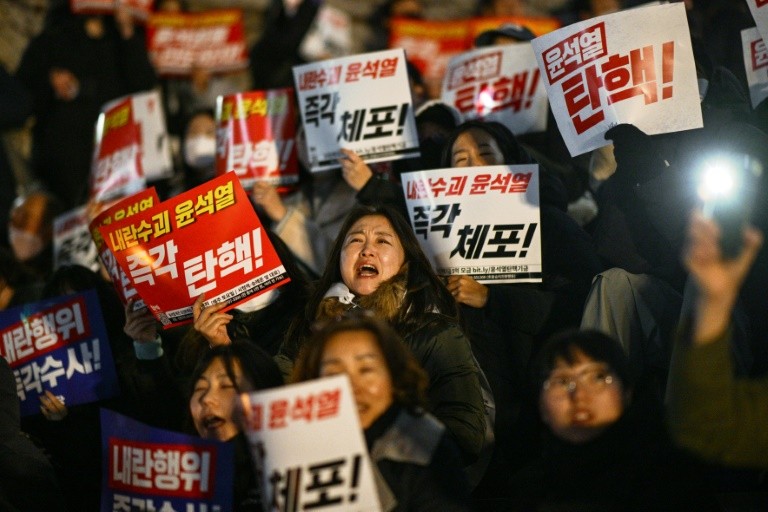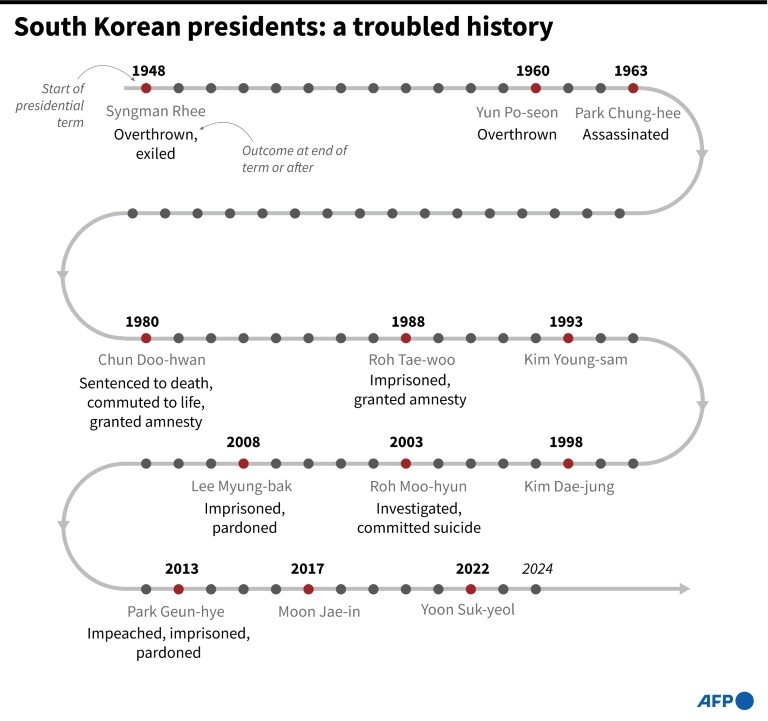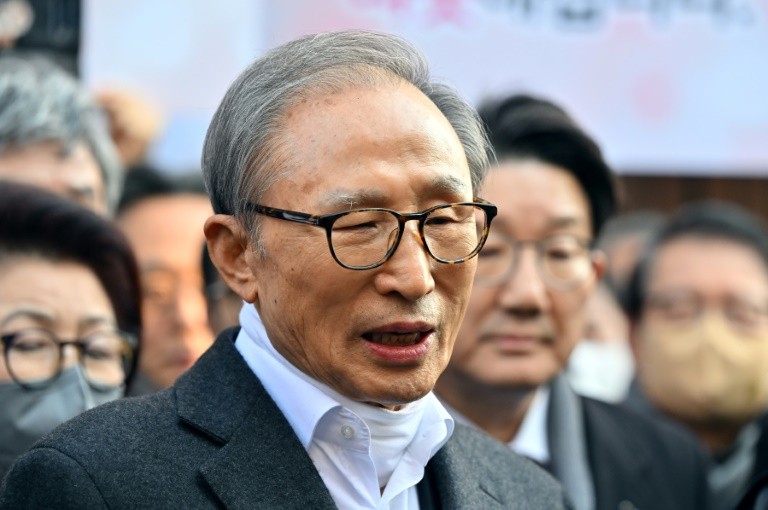
South Korean President Yoon Suk Yeol is now facing impeachment after a shock bid to suspend civilian rule.
But he is far from the first South Korean president to see his rule descend into acrimony and scandal.
Here is a recap of the downfalls of previous South Korean leaders.
In December 2016, Park Geun-hye, president since 2013, was impeached by Parliament in a decision confirmed in March 2017 by the Constitutional Court, leading to her indictment and imprisonment.
The daughter of the former dictator Park Chung-hee, she was the first woman president of South Korea and had presented herself as incorruptible.
But she was accused of receiving or requesting tens of millions of dollars from conglomerates, including Samsung.
Additional accusations included sharing classified documents, putting artists critical of her policies on a "blacklist", and dismissing officials who opposed her.
Park was sentenced in 2021 to 20 years in prison and slapped with heavy fines.
But at the end of that year she was pardoned by her successor, Moon Jae-in.
Yoon, the current president, was a Seoul prosecutor at the time and played a key role in her dismissal and subsequent incarceration.
In power from 2008 to 2013, Park's conservative predecessor Lee Myung-bak was sentenced in October 2018 to 15 years in prison for corruption.
Most notably, he was found guilty of having received bribes from Samsung in exchange for favours to the conglomerate's then chairman, Lee Kun-hee, who had been convicted of tax evasion.
The former leader was pardoned by President Yoon in December 2022.
President from 2003 to 2008 and a strong supporter of rapprochement with North Korea, liberal Roh Moo-hyun killed himself by throwing himself off a cliff in May 2009.
He had found himself the target of an investigation into the payment by a wealthy shoe manufacturer of one million dollars to his wife and five million to the husband of one of his nieces.
Military strongman Chun Doo-hwan, known as the "Butcher of Gwangju" for ordering his troops to put down an uprising against his rule in the southwestern city, agreed to step down in 1987 in the face of mass demonstrations.
He handed over power to his protege Roh Tae-woo.
Roh and Chun had been close for decades, first meeting as classmates at military academy during the Korean War.
In 1996 both men were convicted of treason over the 1979 coup that brought Chun to power, the Gwangju uprising in 1980, corruption and other offences.
Roh was sentenced to 22.5 years in jail, reduced to 17, while Chun was condemned to death, commuted to life in prison.
They were later granted amnesty in 1998 having spent just two years behind bars.
Park Chung-hee was assassinated in October 1979 by his own spy chief during a private dinner.
The events of that night have been long a subject of heated debate in South Korea, particularly over whether the murder was premeditated.
Chun Doo-hwan and Roh Tae-woo were army generals at the time and took advantage of the political confusion to plot a coup in December 1979.
President Yun Po-sun was overthrown in 1961 by a coup led by army officer Park Chung-hee.
Park kept Yun in his post but effectively took control of the government, and then replaced him after winning an election in 1963.
South Korea's first president, Syngman Rhee, elected in 1948, was forced to resign by a popular student-led uprising in 1960, after attempting to extend his term through rigged elections.
Rhee was forced into exile in Hawaii, where he died in 1965.










